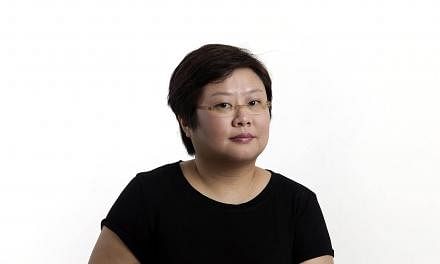SINGAPORE - The proposed changes to the Criminal Procedure Code (CPC) and Evidence Act is a step forward for areas like the community sentencing regime and protection for vulnerable victims, said lawyers, academics and advocacy groups, though they also highlighted areas for improvement.
Most lauded the broader approach to community sentencing, which under the suggested revisions, will include a wider pool of eligible offenders and offences.
Lawyer Sui Yi Siong said: "Not all cases require a period of incarceration in order to satisfy sentencing objectives, and in some cases harsh punishment could cause more harm than good, like in cases of young offenders."
The associate at Eversheds Harry Elias said greater flexibility in sentencing options would also help judges tailor punishments to individuals, and hopefully encourage offenders to make full use of their "second chance" and not reoffend.
However, lawyer Hamidul Haq, a partner at Rajah & Tann Singapore, said while it was a positive step to widen the community sentencing scope, there must also be buy-in from the prosecution.
"Our community sentencing regime is not fully developed because often times, prosecution takes a hardline approach to cases. This will have to change, there must be a balance between punishment and allowing the accused to not face the rigours of jail time if warranted."
Other proposed amendments to further protect victims of child abuse and sexual assault include the automatic issuing of gag orders and automatic in camera (closed-door) hearings when they are testifying.
Association of Women for Action and Research's (Aware) executive director Corinna Lim said privacy is a very important consideration for victims of sexual assault crimes.
"One of the most common questions that victims ask us when they are considering whether to report the offence is whether their names and story will appear in the media," she added.
Law professor Kumaralingam Amirthalingam said the reforms, which also include using physical screens to shield victims from accused in court, would encourage more complainants to come forward as they will feel better protected.
Allowing statements to be taken via video recording will also benefit vulnerable victims, as it will reduce the number of times they will have to recount and relive the ordeal.
Said Aware's Ms Lim: "Further, taping a victim interview provides a more reliable method of documentation than written notes. In other words, it provides the 'best record' of the interview."
However, she said there might be the chance that victims are confused or may have blocked out parts of the incident while giving the video-recorded statement.
"Justice may not be served if these videos, recorded shortly after the incident, are subsequently used to discredit the victim... Perhaps what needs to happen before we start recording victim interviews is that judges should be trained to properly understand victims' behaviour and psychology," she added.
On the flip side, introducing video recording of interviews can also protect accused persons from giving statements under threat, inducement or pressure and also protects investigation officers from being accused of putting improper pressure, said Prof Kumaralingam.
"The video recordings should also help judges evaluate the evidence better as they will be able to see the reactions of the parties and the context of the elicited testimony."
However, Prof Kumaralingam also said there are certain risks that need to be managed to ensure that biased evidence is not admitted and that defence counsels have access to the recording and the right to cross-examine.
Among the other amendments, Prof Kumaralingam said the regulation of psychiatric experts might prove controversial. Under the new regime, psychiatric experts have to be on an approved panel.
"In theory, this is not objectionable as experts are meant to be objective, but in practice, it may give rise to concerns about who is appointed to the panel and the degree of independence exercised by the expert if at the back of their minds they are thinking about reappointment to the panel," he said.








